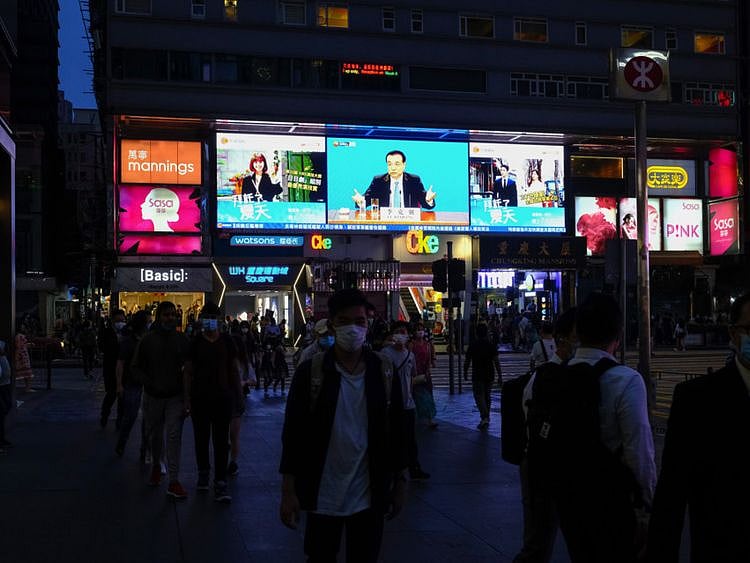Why did China push its Hong Kong security law?
Beijing approves plan to rein In Hong Kong, defying global outcry

BEIJING: China officially has the broad power to quash unrest in Hong Kong, as the country’s legislature on Thursday nearly unanimously approved a plan to suppress subversion, secession, terrorism and any acts that might threaten national security in the semi-autonomous city. As Beijing hashes out the specifics of the national security legislation in the coming weeks, the final rules will help determine the fate of Hong Kong, including how much of the city’s autonomy will be preserved or how much Beijing will tighten its grip.
Why is there so much concern about the law?
The proposal the Chinese state Congress approved is really a guideline for future steps. It tasks the legislature’s Standing Committee, a smaller body with decision-making authority, with developing specific laws at future meetings. Two items in the seven-article draft are getting particular attention. One is the possible deployment of state security. The other is the bypassing of Hong Kong’s legislature by crafting and approving the laws in Beijing. The Hong Kong government is required to enact national security legislation under Article 23 of the Basic Law, its constitution, but has been unable or unwilling to do so because of opposition. An attempt in 2003 was abandoned in the face of huge protests.
What are the exact provisions of the new law?
The devil is in the details. And they haven’t come out yet. “There are still a lot of important questions we have, which have not been answered,” said Joseph Cheng, a political scientist and veteran of Hong Kong’s pro-democracy movement.
What’s likely to be the immediate impact?
Early signals from Chinese authorities point to a crackdown once the law takes effect, which is expected by September. Activist groups could be banned. Courts could impose long jail sentences for national security violations. China’s feared security agencies could operate openly in the city. Even Hong Kong’s chief executive this week appeared to hint that certain civil liberties might not be an enduring feature of Hong Kong life. “We are a very free society, so for the time being, people have the freedom to say whatever they want to say,” said the chief executive, Carrie Lam, noting, “Rights and freedoms are not absolute.”
Would Chinese police be able to arrest people in Hong Kong?
“This may be worrisome. It depends on what the bill says about what powers these people have,” said Albert Chen, a constitutional law scholar at Hong Kong University and member of a committee that advises the congressional Standing Committee on the Basic Law. “If these people have powers of arrest, of search of people’s home or offices, I think people would find it very difficult to accept that,” he said. Details may emerge at upcoming committee meetings in late June and late August.
So what happens to One country, Two systems?
“One country, two systems” is not about to disappear. Hong Kong will continue to manage most of its local affairs, from taxation to common crime. But Beijing is poised to wield an increasingly heavier hand when it comes to dissent and any possible challenges to its ultimate control of Hong Kong.
What has been the global reaction?
The prospect of a national security law has prompted an immediate pushback in Hong Kong, where protesters are once again taking to the streets. The international community, too, has warned against infringing on the city’s civil liberties. The protests in Hong Kong and the reaction in Beijing illustrate a fundamental divide that has once again bubbled to the surface. China’s ruling Communist Party sees stability as vital to maintaining its grip on the country, including the territories of Hong Kong and nearby Macao.
Sign up for the Daily Briefing
Get the latest news and updates straight to your inbox
Network Links
GN StoreDownload our app
© Al Nisr Publishing LLC 2026. All rights reserved.